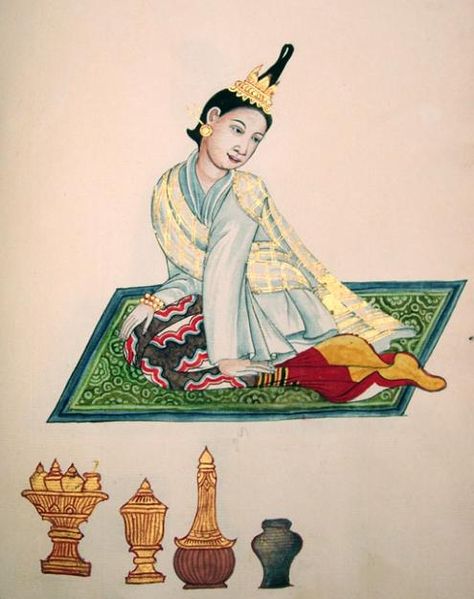
Thammasat University students interested in ASEAN studies, Myanmar, history, political science, and related subjects may find a new book useful.
After the Coup: Myanmar’s Political and Humanitarian Crises is an Open Access book available for free download at this link:
https://press.anu.edu.au/publications/after-coup
It is edited by Anthony Ware and Monique Skidmore.
Associate Professor Anthony Ware teaches international and community development at Deakin University, Victoria, Australia, and a former director of the Australia Myanmar Institute.
Honorary Professor Monique Skidmore teaches at Deakin University’s Alfred Deakin Institute.
The Thammasat University Library collection includes several books about different aspects of politics in Myanmar.
The purpose of the Australia Myanmar Institute:
To create and strengthen sustainable, multi-sectoral, collaborative applied research and capacity building partnerships between Australia and Myanmar, to the mutual benefit of Australian and Myanmar institutions and in a manner that effectively manages capacity constraints in Myanmar, and with the ultimate aim of advancing social and public welfare in both countries. The Institute will do this by facilitating Australian institutions in strengthening the capacity of research, public policy and implementation in Myanmar through collaborative partnerships.
The publisher’s description notes:
The coup in Myanmar on 1 February 2021 abruptly reversed a decade-long flirtation with economic and political freedoms. The country has since descended into civil war, the people have been plunged back into conflict and poverty, and the state is again characterised by fragility and human insecurity. As the Myanmar people oppose the regime and fight for their rights, the international community must find ways to act in solidarity. There is an urgent need for new policy settings and for practical engagement with local partners and recipient groups.
The contributors to After the Coup offer timely insights into ways international actors can try to reduce the suffering of millions of citizens who are again being held hostage by a brutal and self-serving regime. Chapters analyse topics including coercive statecraft, international justice, Rakhine State (Rohingya) dynamics, pandemic weaponisation, higher education, non-state welfare and aid delivery, activism from exile, self-determination and power sharing in the National Unity Government’s alternative constitution, and the roles of China and the Association of Southeast Asian Nations.

The book’s introduction notes:
The outcome is a terrible, ongoing conflict that has devastated the country and, in our estimation, seems destined for stalemate. The NUG and military would disagree, but we do not see the tide turning any time soon. The result is an acute political and humanitarian crisis affecting the entire population, destroying lives and livelihoods. As of 23 November 2022, according to data from the Assistance Association for Political Prisoners, 2,533 civilians have been verified as killed by the junta, including well over 400 children, with 16,403 arrests for participating in anti-coup activities including the CDM. At that time, some 12,976 remained detained by the military, despite just 1,608 having been charged and sentenced. This figure may be less now, after the junta released 5,774 prisoners in an amnesty on 17 November 2022 for National Day, but the AAPP had only been able to verify that 402 of the political prisoners on their list had been released by 23 November. Meanwhile, a total of 128 civilians have now been sentenced to death, the first four of whom were executed on 25 July amid global outcry.
The Institute for Strategy and Policy – Myanmar record at least 2,299 civilians shot by the military while protesting and another 701 who died in the process of being arrested by the SAC. They confirm that at least 36,000 houses and buildings were destroyed in military raids since the coup, resulting in more than 1.6 million people now internally displaced—taking the combined total of internally displaced people plus refugees from Myanmar to almost 3 million people. The NUG allege around 2,800 separate war crimes have been committed by the military, including arbitrary killings, extrajudicial executions, rape, the use of torture, using civilians as human shields, air and artillery strikes on civilian targets, and the looting and burning of houses. On the other side, however, the SAC allege over 3,542 civilians have been killed by resistance forces in targeted assassinations as alleged military informants. This has not been independently verified, but, if true, it would take the total civilians killed in violence since the coup to over 7,000 people. Evidence of atrocities on both sides is mounting.
What is clear is that the strength and organisation of resistance clearly took the military leadership by surprise, and its effectiveness and longevity has surprised most international commentators. The CDM, NUG and PDF have prevented the military from consolidating control. By any analysis, the coup has been only partially successful, at best, in delivering control of the country to the generals, who still have only limited control over the bureaucracy, health and education systems, international relations and, indeed, territory across Myanmar. Their ongoing campaign has not only highlighted their brutality and bloody-mindedness, but also the incompetence of the military. Its need to resort to brutal tactics and overwhelming force, and still be unable to succeed, underscores its total ineptitude. The high rate of defections of soldiers and police to the PDFs have become an increasing concern for the military and have helped to sustain and grow the PDF resistance. The military are increasingly spread very thin, fighting insurgents on a multitude of fronts, to the point that they have needed to draft police to serve on the frontlines against PDF forces (Irrawaddy 2022b) and form armed pro-military civilian militias. Reports suggest they have had to resort to airstrikes because ground troops are reluctant to fight.
There are a range of deeply concerning factors in the events since the coup. These include the military’s use of battlefield tactics against civilians in urban areas, particularly the coercive violent repression of unarmed, peaceful civilians in the first months after the coup; renewed warfare between the military and several of the minority group armies, including the use of aerial bombardment for the first time in two decades; increasing strategic engagement of Russia and China; decline, outlawing or suborning of the institutions that previously supported civil society and democratisation, specifically the Buddhist monkhood (Sangha), the NLD and the media; and the rapid breakdown of institutional capacity and increase in state fragility, with a decimation of the economy and rapid impoverishment of the country. The interlinked political, economic and humanitarian crises are severe and deeply intertwined. […]

(All images courtesy of Wikimedia Commons)
